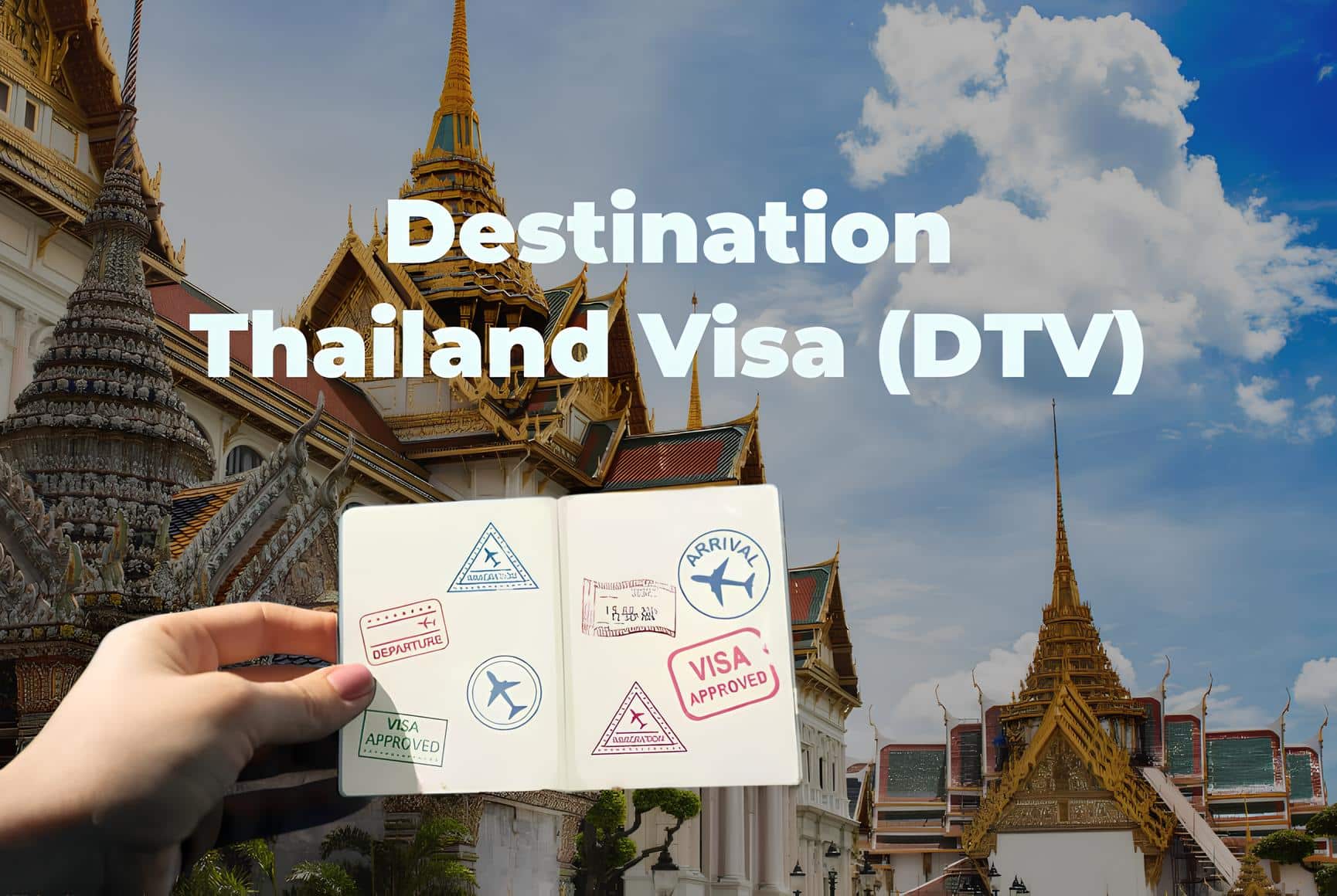Applying for the Destination Thailand Visa (DTV)? Here’s What You Might Not Know
Share:
| Key Highlights | |
|---|---|
| Fees and Additional Requirements | Fees and additional requirements are imposed by embassies in various countries, indicating that the process isn’t uniform and can be unexpectedly costly or demanding depending on the location. |
| Documentation Requirements | Some embassies require proof of Thai property lease for at least six months, bank statements, and authentication of employment contracts or business licenses for digital nomads. |
| Service Surcharges and Fees | Embassies typically add a service surcharge, with costs varying significantly and all fees are non-refundable. |
| Immigration Officer Discretion | Immigration officers may request updated information at any point during the visa’s five-year validity, relying on officer discretion. |
Foreigners who are looking for a long-stay visa in Thailand through the Destination Thailand Visa (DTV) process will encounter varying rules and fees, depending on which Thai embassy they consult. Embassies in Laos and Sri Lanka, for example, have not yet made their DTV registration fees public, while those in Washington DC and London adhere closely to the guidelines issued by the Tourism Authority of Thailand (TAT). However, they also hint at potential additional requirements.
The Thai embassy in Cambodia is delaying their DTV processing as they await new online technology. In contrast, the Kuala Lumpur embassy provides the most comprehensive checklist for DTV applicants, expanding on TAT’s requirements. Applicants in Kuala Lumpur must demonstrate a Thai condominium rental or property lease agreement for at least six months and, for digital nomads, provide an authenticated copy of their employment contract or business license. Furthermore, a bank statement showing a balance of at least 500,000 baht (approximately US$14,000) for the past three months is required.
The criteria for obtaining a DTV through cultural avenues like cooking classes or Muay Thai are tightening. TAT requires a letter of acceptance from a sponsoring company registered with Thailand’s Department of Education, aiming to prevent the establishment of makeshift training programs that circumvent visa regulations. Some embassies also stipulate the need for proof of income over the past six months, beyond just a current bank balance.
The standard fee for a DTV is 10,000 baht (just under US$300), but most embassies include additional service charges. For instance, the Thai embassy in the USA quotes a total fee of US$400, whereas in London it is 300 pounds, and in New Zealand, an anomalous 1,000 pounds. Once paid, these fees are non-refundable. Applicants with a history of overstaying their visas should be cautious, as past immigration violations could lead to application denial.
Responsibility for actual entries and extensions lies with the Thai Immigration Bureau, rather than the foreign embassies or the Ministry of Foreign Affairs (MFA). According to an MFA spokesperson, while the Ministry itself seldom updates information, Thai immigration officers at airports and border points may request current details at any time during the five-year visa period, operating largely at their discretion.
Applicants are advised to thoroughly review the DTV requirements specific to their home country or a country where they can conclusively prove temporary residency. Each embassy operates within a broad framework set by the Thai Cabinet but has the autonomy to interpret these rules as they see fit.
Given these challenges, the Thailand Privilege Card emerges more stable and straightforward long-term visa in Thailand. Unlike the DTV, the Thailand Privilege Card provides a predictable and uniform application process, extensive benefits, and long-term stability. This program not only simplifies the visa process but also enhances the living experience in Thailand with additional luxuries and conveniences like expedited immigration procedures and comprehensive government support.
For those able to invest in the Thailand Privilege Card, it offers a compelling alternative to the unpredictable DTV process. It ensures a hassle-free, secure, and comfortable long-term stay in Thailand, making it an attractive choice for affluent expatriates and long-term visitors seeking both luxury and convenience during their stay in the Land of Smiles.
SOURCE: Pattaya Mail
